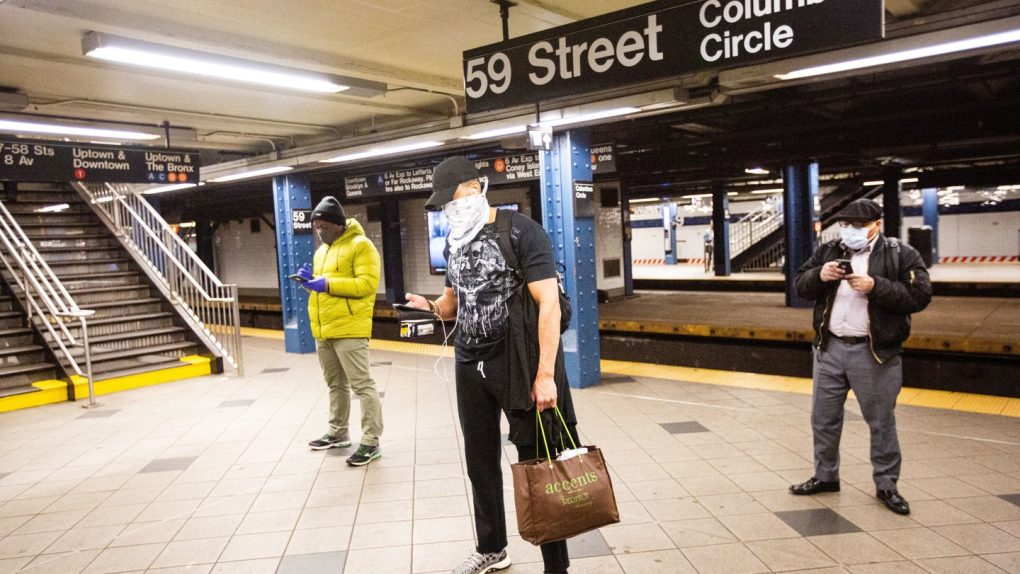- German biopharmaceutical company BioNTech partnered with Pfizer on the development of an mRNA vaccine for the novel coronavirus.
- Their product reached the clinical phase trial stage, with Phase 1/2 testing already underway in Germany and the US.
- The first American volunteers will soon enroll in the trial, and the two companies say they may be able to manufacture hundreds of millions of doses next year, assuming the drug works.
- Visit BGR’s homepage for more stories.
115 teams were working on COVID-19 vaccine candidates as of mid-April, according to Bill Gates, and some of those drugs have already reached human trials. Just last week, we learned of a company from German that started trials on an mRNA vaccine. BioNTech’s BNT162 is the compound in question, and the company partnered with pharmaceutical Pfizer to expand testing and manufacturing.
The two parties on Tuesday announced that the Phase 1/2 trial of BNT162 will start in the US as well. Assuming the drug can generate the desired immune response preventing infection with the novel coronavirus, millions of doses of the vaccine might be ready for emergency use this year, and hundreds of millions of doses could be mass-produced in 2021.
The Phase 1/2 clinical trial is part of a global development program, the two companies said in a press release. The dosing of the first cohort in Germany was completed last week. The Phase 1/2 trial is “designed to determine the safety, immunogenicity and optimal dose level of four mRNA vaccine candidates, and is to be evaluated in a single, continuous study.”
Stage 1 of the study is the dose level escalation portion of the Phase 1/2 trial in the US and will include up to 360 subjects in two age cohorts: 18-55 and 65-85. The younger group will be the first to receive the vaccine, and the older group will get it once testing of the younger cohort has yielded evidence of safety and immunogenicity. In other words, as with other vaccine candidates, the testing phase needs to prove the new drug is effective at generating a response and is safe for the user.
The BioNTech drug will be given to volunteers at several sites in the US, including NYU Grossman School of Medicine, University of Maryland School of Medicine, University of Rochester Medical Center/Rochester Regional Health, and Cincinnati Children’s Hospital Medical Center.
Pfizer and BioNTech are looking at four vaccine candidates, each representing a different combination of mRNA format and target antigen. The trial will look at these candidates simultaneously to identify the safest and most efficient candidate that will be then administered to a larger number of volunteers.
The two companies are already working on scaling up production of the vaccine for global supply, assuming the final candidate delivers the expected results:
Pfizer plans to activate its extensive manufacturing network and invest at risk in an effort to produce an approved COVID-19 vaccine as quickly as possible for those most in need around the world. The breadth of this program should allow production of millions of vaccine doses in 2020, increasing to hundreds of millions in 2021. Pfizer-owned sites in three U.S. states (Massachusetts, Michigan and Missouri) and Puurs, Belgium, have been identified as manufacturing centers for COVID-19 vaccine production, with more sites to be selected. Through its existing mRNA production sites in Mainz and Idar-Oberstein, Germany, BioNTech plans to ramp up its production capacity to provide further capacities for a global supply of the potential vaccine.
Upon regulatory approval, Pfizer and BioNTech will make the vaccine available worldwide everywhere but China, where the company has partnered with Fosun Pharma.
BioNTech isn’t the only company developing genetic vaccines, which are a type of drug that has never been tried on humans to prevent infectious diseases. Moderna started Phase 1 trials of its own mRNA vaccine candidate a few weeks ago, and is now preparing for Phase 2. If successful, Moderna’s vaccine might be ready for emergency use as soon as this fall. However, the company has yet to reveal any data about the efficiency of the product. Separately, Bill Gates-backed Inovio has a DNA vaccine in the works.
A few days ago, Dr. Anthony Fauci said that the first COVID-19 vaccine might be ready for mass use as soon as January, but that’s a best-case scenario assuming everything goes well. Despite the large number of companies working on vaccines for the novel coronavirus, there’s no guarantee that any of them will work.
Bill Gates warned a few days ago that the biggest challenge that will follow the actual development of an effective vaccine are manufacturing the product in large numbers and delivering it to all corners of the world.








